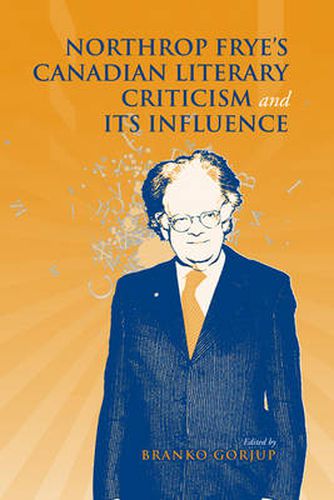Readings Newsletter
Become a Readings Member to make your shopping experience even easier.
Sign in or sign up for free!
You’re not far away from qualifying for FREE standard shipping within Australia
You’ve qualified for FREE standard shipping within Australia
The cart is loading…






In his long and eminent scholarly career, Northrop Frye engaged with subjects ranging from classics to twentieth-century writings. Northrop Frye’s Canadian Literary Criticism examines the impact of Frye’s criticism on Canadian literary scholarship as well as the response of Frye’s peers to his articulation of a ‘Canadian’ criticism.
Frye’s belief that Canadian writing should be studied within the context of Canadian life rather than evaluated autonomously, in relation to the world’s literature, was controversial. While there were those who favoured Frye’s position and extended its use for wider theoretical applications, those who criticized Frye’s stance felt that Canadian authors should not be exempt from universally sanctioned critical standards. Branko Gorjup and an esteemed group of contributors skilfully capture the tension that arose from this binary critical problematic and document the various attempts at resolving or transcending it, encouraging a remapped understanding of Frye and locating his place in Canadian criticism from a contemporary perspective.
$9.00 standard shipping within Australia
FREE standard shipping within Australia for orders over $100.00
Express & International shipping calculated at checkout
In his long and eminent scholarly career, Northrop Frye engaged with subjects ranging from classics to twentieth-century writings. Northrop Frye’s Canadian Literary Criticism examines the impact of Frye’s criticism on Canadian literary scholarship as well as the response of Frye’s peers to his articulation of a ‘Canadian’ criticism.
Frye’s belief that Canadian writing should be studied within the context of Canadian life rather than evaluated autonomously, in relation to the world’s literature, was controversial. While there were those who favoured Frye’s position and extended its use for wider theoretical applications, those who criticized Frye’s stance felt that Canadian authors should not be exempt from universally sanctioned critical standards. Branko Gorjup and an esteemed group of contributors skilfully capture the tension that arose from this binary critical problematic and document the various attempts at resolving or transcending it, encouraging a remapped understanding of Frye and locating his place in Canadian criticism from a contemporary perspective.